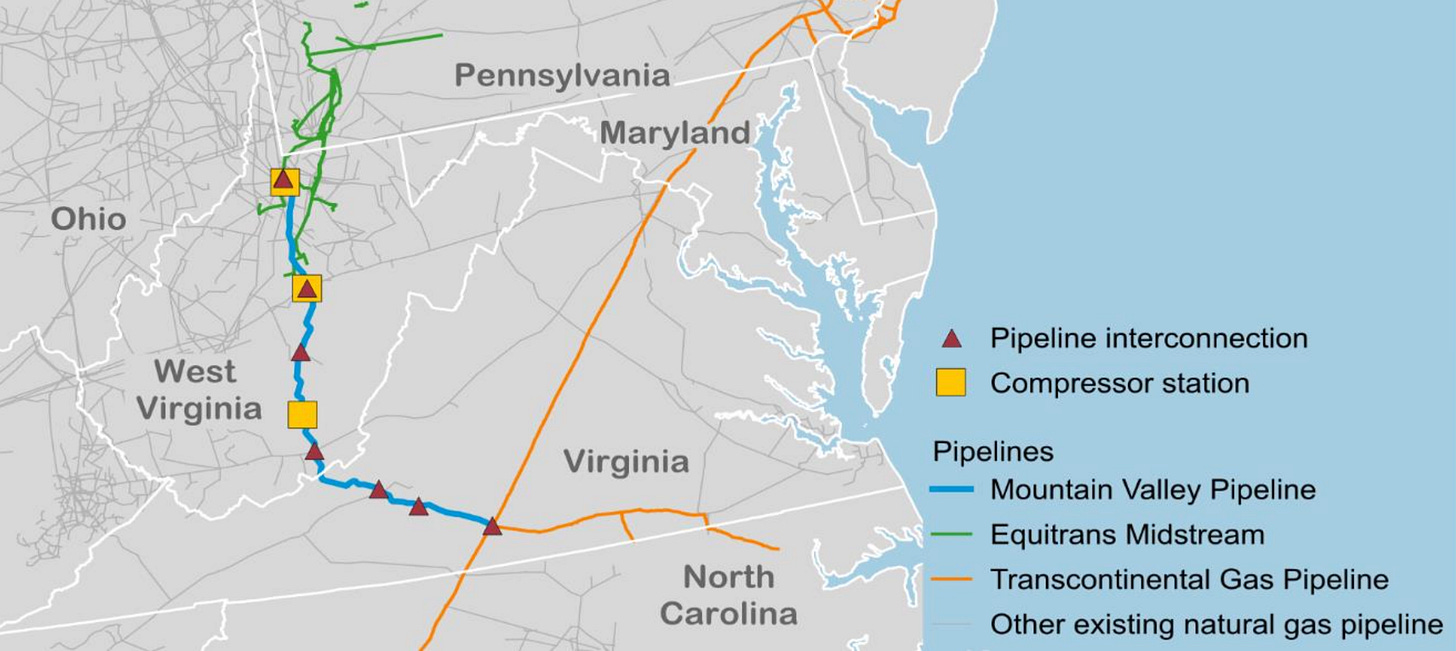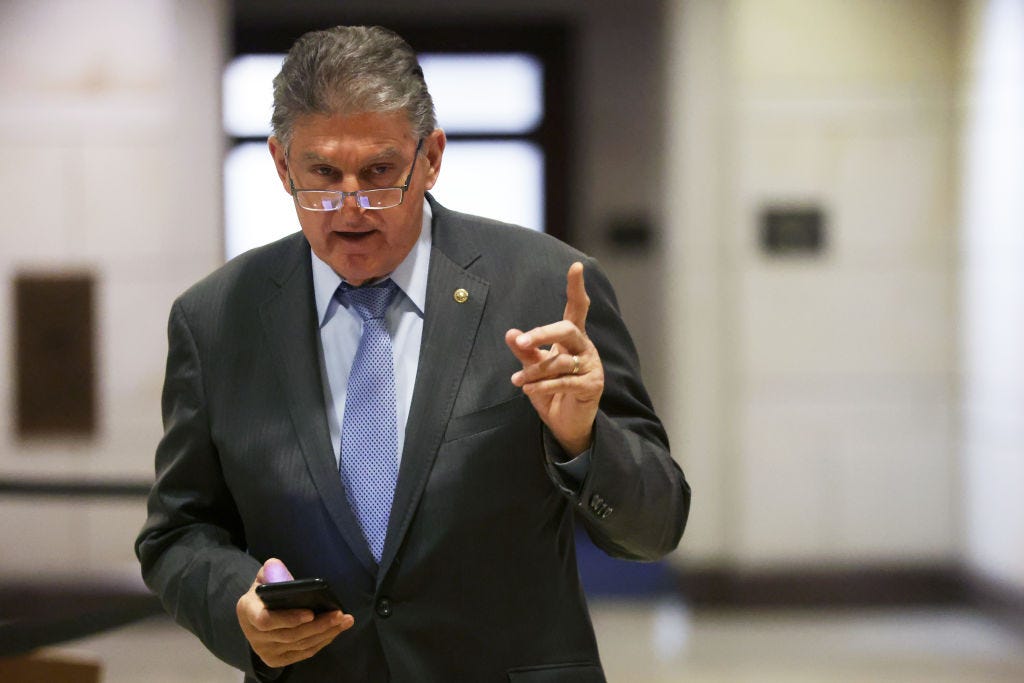Swan Song
On the prospect of major permitting reform in the US.
“We shouldn't accept mediocrity as the best a politician can do.” – Joe Manchin
In October of 2015, Mountain Valley Pipeline, LLC, filed an application with the Federal Energy Regulatory Commission (FERC) to build a pipeline connecting the prolific shale gas fields of Appalachia to the broader network of energy infrastructure in the US Southeast. The Marcellus Shale was producing vast quantities of natural gas, swamping local demand, and off-take capacity from the region soon became a serious constraint. Investors backing the Mountain Valley Pipeline (MVP) project were ready to risk their capital to resolve the market’s needs, anticipating that MVP would go into operation in late 2018.
The application was countered with a torrent of lawfare funded by environmental groups that delayed construction by years, substantially increased costs, and nearly tanked the entire initiative. A literal act of Congress was required to finally settle the issue, with legislators taking the unusual step of specifically removing jurisdiction over the MVP project from activist courts. Six years late and hundreds of millions of dollars wasted, gas finally started to flow in mid-June:
“On June 11, the Federal Energy Regulatory Commission (FERC) authorized the Mountain Valley Pipeline (MVP) to begin operations. MVP, 303 miles long, can move up to 2.0 billion cubic feet per day (Bcf/d) of natural gas from Wetzel County, West Virginia, to an interconnection with Transcontinental Gas Pipeline’s (Transco) compressor station 165 in Pittsylvania County, Virginia. Transco delivers natural gas through a 10,000-mile interstate transmission pipeline system extending from South Texas to New York.
MVP has signed long-term agreements with multiple shippers for the full capacity of the pipeline for at least 20 years from the in-service date. MVP will enable its shippers to access markets in the Northeast, mid-Atlantic, and Southeast United States.”
The eventual hero of this story was US Senator Joe Manchin, who we have previously described as “perhaps the most astute and effective senator on the subject of energy among this generation of political leaders.” The Democrat-turned-Independent from West Virginia was always somewhat out of place among his caucus, finding practical solutions to economic challenges and preferring an all-of-the-above approach to US energy policy. Manchin leveraged his position as the fulcrum vote in the Senate to parlay a compromise that included significant support for nuclear and hydrocarbon energy development alongside the massive investments in renewables called for in the dubiously named Inflation Reduction Act of 2022 (IRA). The completion of the MVP project would simply not have happened were it not for his support.
Having been bested by Manchin in this particular energy battle, environmentalists soon realized that the lawfare they had unleashed on the hydrocarbon sector made for a useful precedent to stunt the solar and wind industries as well. Local opponents of such initiatives gummed up the federal permitting process with legal objections of their own, resulting in a massive backlog of proposed renewable energy projects awaiting the approval of new transmission lines, grid connections, and myriad other requisite blessings from the federal government. A two-can-play-at-that-game impasse where nobody wins is precisely the kind of situation that calls for a legislator skilled in the art of compromise.
Despite his planned retirement from the Senate at the end of this term, Manchin has spent much of the past year working with his Republican colleagues to craft a grand bargain on federal energy permitting reform. If passed, the proposed bill would not only radically accelerate the pace of federal permitting and significantly reduce the role of the courts in delaying virtually all major infrastructure projects, but it would also cement Manchin’s legacy for generations. What is in the bill, and is it likely to get passed? Will the left accept this reasonable compromise or hold out for its maximalist demands? Let’s head to Washington and find out.



